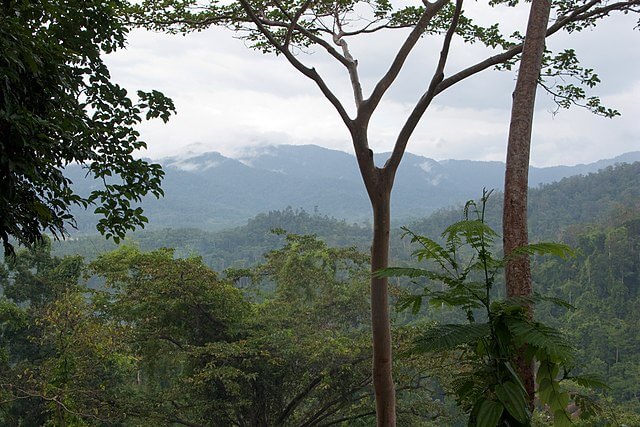
A think tank has issued a warning that an annual investment of at least $130 billion is required to protect the most vulnerable tropical forest areas by the end of the decade.
Alongside financial commitments, the think tank also emphasised the need for reductions in beef and dairy consumption, as well as government bans on deforestation. This urgency arises from the non-binding target agreed upon by over 140 world leaders at Cop26 in 2021 to halt and reverse deforestation, a crucial step in limiting global heating to below 2 degrees Celsius and curbing biodiversity loss.
Presently, the average annual financing for forest protection amounts to $2-3 billion. According to a report titled “Financing the Transition: The Cost of Avoiding Deforestation” by the Energy Transitions Commission, eliminating economic incentives for deforestation linked to cattle ranching, agriculture, and other industries would require a minimum of $130 billion per year. This funding could originate from carbon markets, affluent governments, and philanthropists. However, it is imperative to complement financial efforts with immediate actions such as banning forest clearance, promoting forest-dependent businesses, and reducing demand for commodities associated with deforestation, including palm oil, soy, beef, and cocoa.
Lord Turner, the chair of the Energy Transitions Commission and former head of the CBI and the UK government’s Committee on Climate Change, cautioned governments against underestimating the magnitude of the challenge.
“As long as the world consumes more red meat, there will be an incentive to deforest more areas of tropical rainforest. If we have that $130bn coming forward, it could make a material difference. But it would not put a total or permanent stop to it. The danger would be that it would come back in future years,” Turner said.
“This is an area where robust quantification of what you spend and what you get is much more difficult than anywhere else. When we work out how much to spend to decarbonise the electricity system, we can come up with a figure. [With deforestation], there is extreme uncertainty. If you really wanted to spend your way to turning off the deforestation, with a trillion a year you’d probably do it. If you’ve allocated $10bn, which is the kind of figure that comes out of the G7, don’t fool yourself,” he said.
Deforestation ranks as the second-largest source of human greenhouse gas emissions, responsible for approximately 15% of the total. It is also a leading cause of biodiversity loss and ecosystem degradation. Despite scientific warnings of imminent collapse, deforestation continues at an alarming pace, particularly in crucial ecosystems like the Amazon.
The protection and expansion of forests are pivotal in the efforts to limit global heating, alongside substantial reductions in fossil fuel consumption.
Many prominent companies purchase carbon credits based on forest protection, while governments increasingly pursue agreements at the national level to combat deforestation, such as the 2022 accord between Norway and Indonesia. However, analysis has revealed that numerous rainforest offsetting projects have had limited success in preventing deforestation.
——————————————————————————
At Natural World Fund, we are passionate about stopping the decline in our wildlife.
The declines in our wildlife is shocking and frightening. Without much more support, many of the animals we know and love will continue in their declines towards extinction.
When you help to restore a patch of degraded land through rewilding to forests, meadows, or wetlands, you have a massive impact on the biodiversity at a local level. You give animals a home and food that they otherwise would not have had, and it has a positive snowball effect for the food chain.
We are convinced that this is much better for the UK than growing lots of fast-growing coniferous trees, solely to remove carbon, that don’t actually help our animals to thrive.
This is why we stand for restoring nature in the UK through responsible rewilding. For us, it is the right thing to do. Let’s do what’s right for nature!
Support our work today at https://naturalworldfund.com/ and join in the solution!

